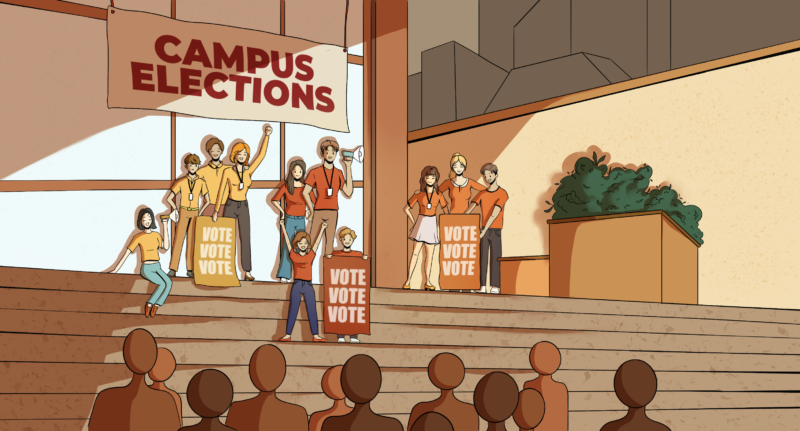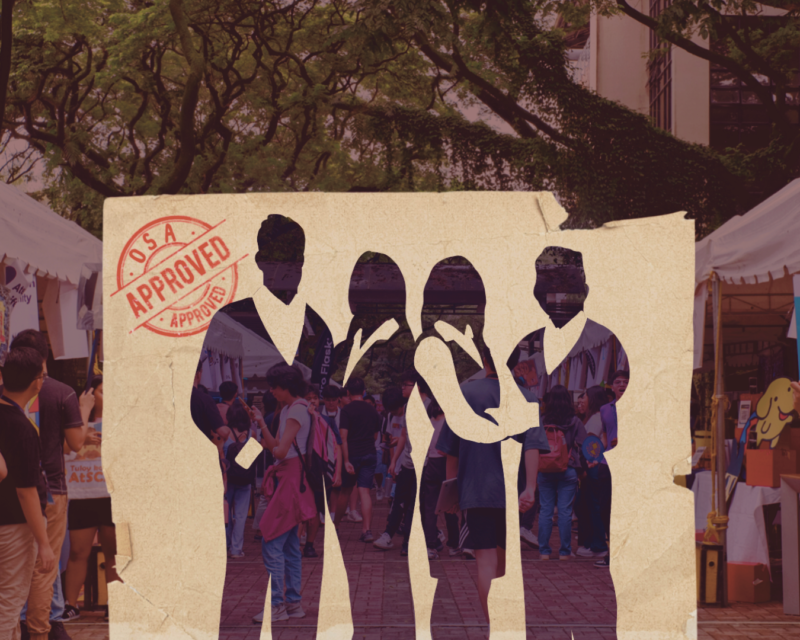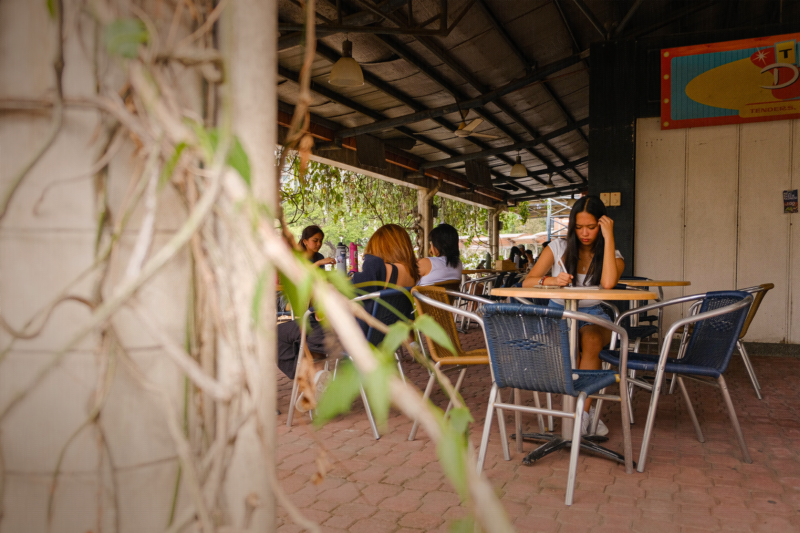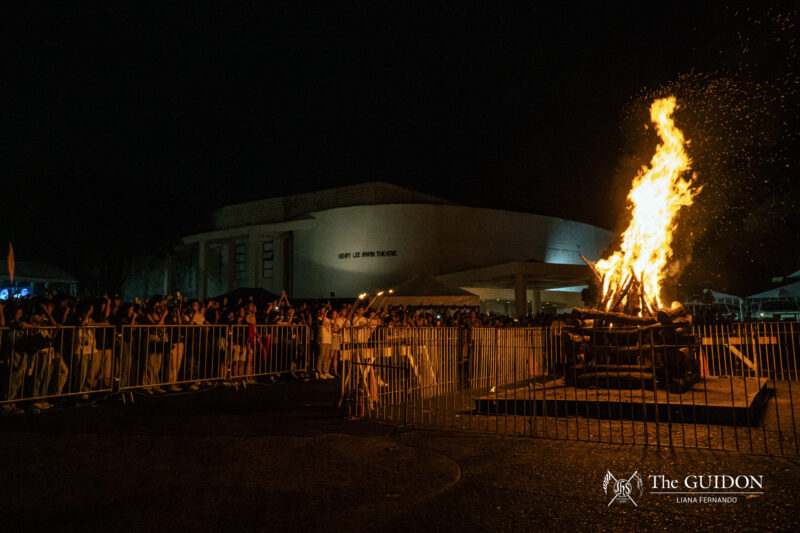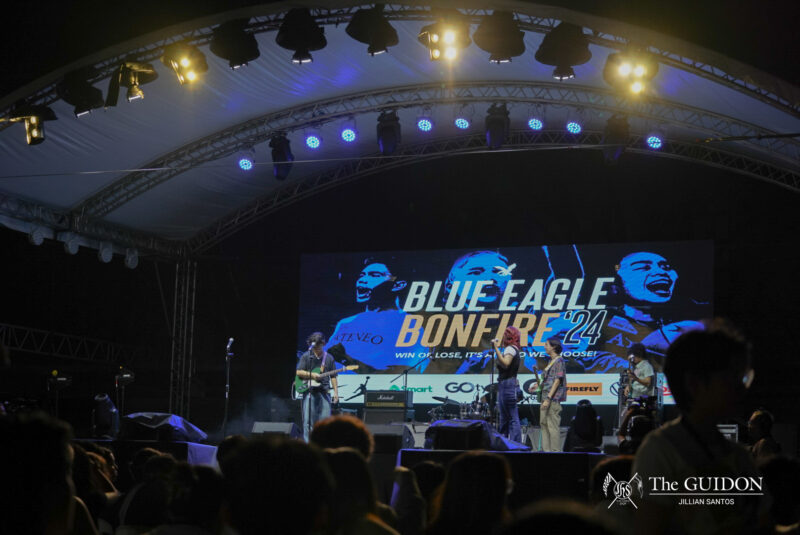Understanding the intersections of different religions within a Catholic university.
This school year, the Sanggunian’s Central Board (CB) approved the “Religious Support Act of 2014.” As an act intended to cater to the needs of non-Catholics in the Ateneo, it is a welcome opening for inter-religious dialogue within our university.
Prior to this act’s passing, however, there was no large-scale motion for religious. While the Ateneo professes itself to be a university open to other religious beliefs, Loyola’s halls remain relatively hushed to the sounds of non-Catholic activity.
The silence is shocking considering that 80% of the Ateneo population is Catholic, according to statistics taken from the Campus Ministry Office (CMO), though not all of these Catholics are practicing. The remaining 20% leaves around 1,500 non-Catholics on campus. This number includes people who practice other religions, such as Evangelical Christians and Muslims, as well as professed atheists and agnostics. Given this staggering number of non-Catholics, is the Ateneo doing enough to properly accommodate them?
Pilgrim’s progress
Management junior Amil Tamano is a practicing Muslim. After studying in the Ateneo for over a decade, he has grown accustomed to studying in a Catholic university. Though there were some jokes about his religion in grade school—such as when he’d score the highest in class for a religion long test—he says he can’t say that he’s been seriously discriminated against.
However, Tamano doesn’t feel the need to integrate his faith and school lives together. He believes that school should be purely academic in nature. Since his family is a little more liberal in practicing Islam, he also isn’t compelled to pray at certain times of the day.
Management engineering senior Evan Lao, on the other hand, is of the opinion that there should be a space in school but outside of academic classes for students to deepen their faith. Lao is the coordinator of Elevate, a non-denominational Christian group in the Ateneo that has achieved moderate success this year, seeing around a hundred Atenean attendees during their non-proselytizing, faith-deepening events. Despite this, Lao comments that it is difficult to get Ateneans to talk about Jesus because of a culture of indifference towards religion formed by a lack of focus on the sacred.
According to Lao, “Faith is not relevant on campus. People don’t see the need to understand the reason they go to mass or engage in any religious activity. I think they don’t treat God as their number one priority. There’s a difference between going to mass and loving God.”
Doctrinal value
The Ateneo prides itself in a core curriculum that contains 12 units of philosophy and 12 units of theology. All theology classes and some philosophy classes are centered on the study of religions. According to the mission-vision statement of the Loyola School of Theology, the inclusion of these units aims to “educate in the faith, sustain personal theological growth, and assist in effective empowerment of all who decide to serve God’s people by ministries in and of the Church.”
Philosophy professor Manny Dy, PhD teaches courses in Eastern philosophy. He says that philosophy and religion are intertwined and can never separate, at least for Eastern religions. Dy says that looking at philosophy is an opportunity to challenge one’s faith rather to detach one’s self from it. In addition, he says that students need to be open to understanding other religions in order to deepen their faith.
Citing the Buddhist principle of “life as suffering” as related to the Christian need for a savior, Dy illustrates that learning about other faiths is a way to deepen one’s own.
“Buddhism, Taoism, all these religions are in preparation of the good news of Christianity: That God so loved the world that He gave His only begotten son,” Dy says.
Wilson Espiritu, an assistant professor from the Theology Department, echoes these sentiments. He cites the Ignatian principle of Tantum Quantum (In as much as) that refers to using whatever method possible to glorify God.
An eye for an eye
The understanding of these intersections of religion in the Ateneo as noted by Dy and Espiritu is an avenue to deepen the faith of Catholics on campus. Still, Espritu believes that the Theology curriculum in the Ateneo should resonate with non-Catholics as well.
He uses Theology 141: A Theology of Catholic Social Vision as an example. The course tackles Liberation Theology, which focuses on issues of poverty, injustice and oppressive structures of society. While some have qualms with using the Catholic faith as a vehicle to address these problems, Espiritu notes that the class nonetheless sheds light on issues that all students must be aware of and can relate to.
He cites the example of professor Bobby Guevarra and his lecture on the Prodigal Son. Espiritu quotes Guevarra’s lecture, “Who cannot relate with the experience of going away from your father and the experience of desolation that follows? Coming back to your senses after desolation, you realize there is something—more, something that is beyond yourself.”
Psychology senior and Hindu Suchika Kumar believes in the relevance of Theology 141 but has her own perspective on the direction people should put their faith.
Kumar comments, “I think faith is necessary to abolish oppressive structures. It doesn’t have to be faith in god, it can be faith in fellow man. This is why I find Theo 141 relevant because I focus on how it challenges us to have faith and love for mankind.”
While Espiritu is confident in the Ateneo curriculum, he says that it still is not perfect. Since the curriculum was formed in the 1980s it would be wise to consider revising it to engage a modern Atenean audience.
In the Ateneo de Zamboanga University, for instance, students have the choice between Catholic and Islamic tracks for their core curriculum. Four classes, “The Fundamentals of Islam and Prayer,” “The Life of the Prophet Muhammad,” “Prophetic Traditions and Islamic Law Commentaries,” and “Marriage and Parenting in Islam” are an alternative to the 12 units in the Catholic track.
Acts of charity
Another major avenue of development for dialogue between religions is the CMO. Last year, the office started a new inter-faith project within the Integrated Non-Academic Formation (INAF) Program. This project creates opportunities for non-Catholics to discuss points taken up during recollections or talks and spend personal time in prayer. These activities usually occur when Catholics are undergoing the sacraments, so non-Catholics will not feel alienated during these periods of time.
However, the fledging program is still in need of changes, according to Stan*, a student who participated in the inter-faith program. While Stan appreciates the CMO for attending the needs of the non-Catholic Atenean community, he is critical of how these sessions are facilitated.
“I felt like they were trying to convert me to Catholicism. I felt uncomfortable during the session and it didn’t help that Catholics who wanted to attend the dialogue weren’t allowed to attend.”
Nonetheless, the CMO finds itself in a rare opportunity to develop these projects with the passing of the Religious Support Act of 2014. Abbo Hernandez, Sophomore CB Representative of the School of Social Sciences and author of the bill is already in “casual talks” with the CMO. According to its proposal, the act’s objective is to “promote and maintain religious diversity in the Ateneo by providing various religious denominations within the university with essential items and facilities that will aid students in practicing their respective faiths.”
But before addressing concerns like the inter-faith dialogue, Hernandez wants other religions to be more visible so that they will be able to join in discourse.
The multi-faith room on the ground floor of the Manuel V. Pangilinan (MVP) building will be provided with materials from other religions so they may be free to worship. In the same way, Hernandez is in the process of contacting religious leaders from non-Catholic organizations so that they will be available on call for prayer time or for religious meetings.
Human nature
Though movements on campus by other religions have been relatively silent in the past decade, developments from the Sanggunian and the CMO are sure to open up roads for both Catholics and non-Catholics for communication. Organizations like Elevate, according to Lao, have several projects centered on inter-religious dialogue in store for next year in order to maximize these developments.
As long as these organizations have no intent to proselytize, the CMO and faculty is open to this kind of discourse and deepening of faith. Espiritu is positive the student body will welcome the change this discourse is bound to provide.
Espiritu notes, “There in us a hunger for something—something more. And I think that this hunger is innate in all of us. That’s human nature.”


